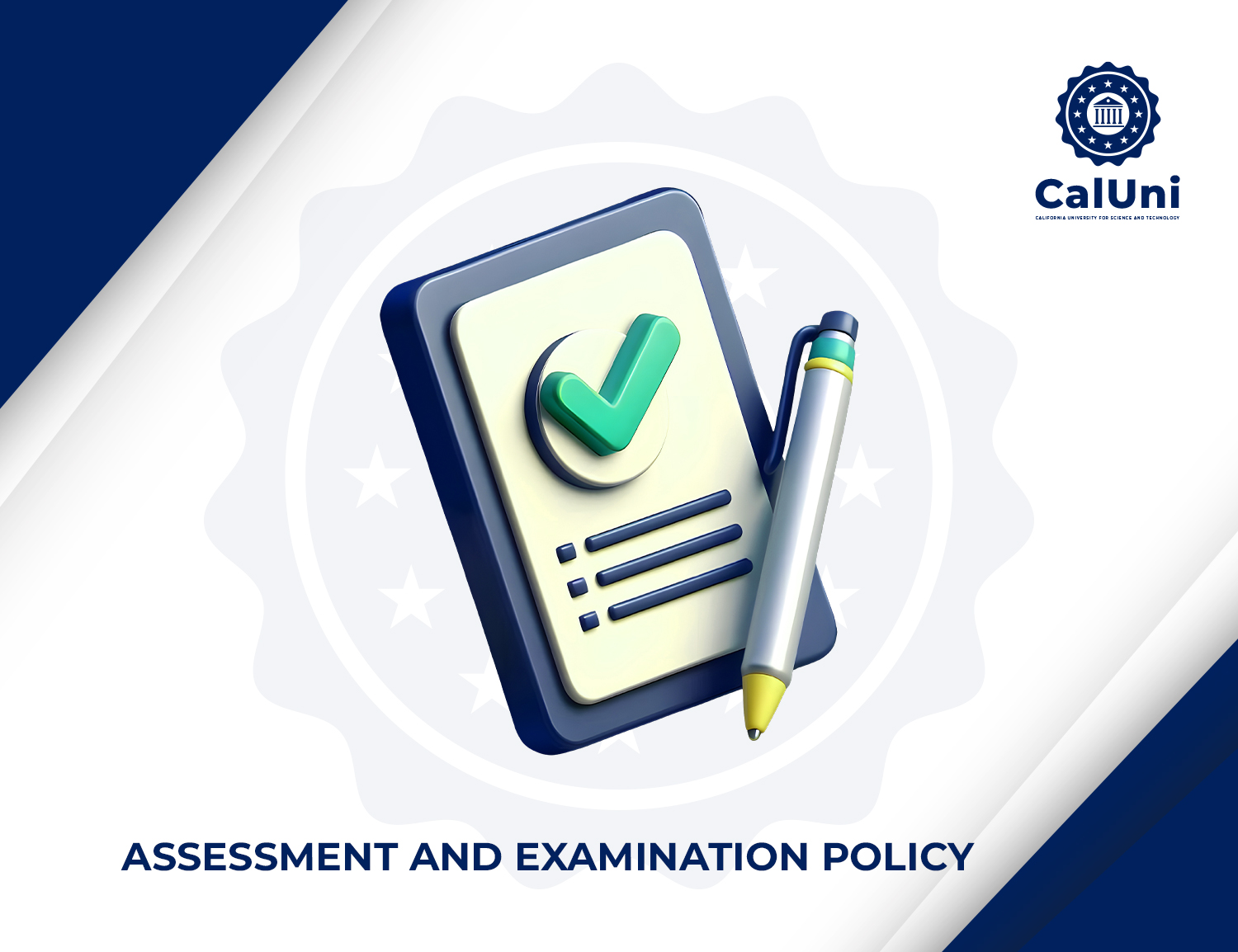
Assessment and Examination Policy
Objective
This policy aims to provide clear guidelines and procedures for assessing and examining students at CalUni University. It ensures that assessments are conducted fairly, consistently, and transparently.
Scope
The policy applies to all students enrolled in diploma, undergraduate, postgraduate, and professional development programs at CalUni University.
Principles
-Fairness: All assessments and examinations will be conducted impartially and without bias.
-Transparency: The criteria and procedures for assessments will be clearly explained to all students.
-Academic Integrity: Students are expected to adhere to the highest standards of academic integrity in all assessments and examinations.
Types of Assessment
-Formative Assessment: These are continuous assessments aimed at providing students with feedback to help improve their learning. Examples include quizzes, assignments, and class participation.
-Summative Assessment: These assessments contribute to the final grade of the course. Examples include final exams, major projects, and term papers.
Assessment Criteria
-Assessment criteria will be outlined in the course plan provided at the beginning of each semester.
-Criteria will include the distribution of grades across different assessment components, evaluation standards, and expectations for each assignment.
Examination Procedures
-Scheduling: Examination schedules will be published at least four weeks before the examination period.
-Attendance: Students must attend all scheduled examinations. In cases of illness or other acceptable reasons, students must notify the Examination Office as soon as possible and provide supporting documentation.
-Conduct: Students must adhere to the rules and regulations of examinations, which will be clarified before the exam period. Any form of cheating or misconduct will be addressed in accordance with the university's academic integrity policy.
-Special Accommodations: Students requiring special exam accommodations must contact the Student Services Office at least two weeks before the examination period.
Assignment Submission
-Deadlines: All assignments must be submitted by the specified deadlines. Late submissions will incur penalties as outlined in the course plan.
-Format: Assignments must be submitted in the format specified by the instructor, which may include electronic submission or hard copy.
-Originality: All assignments must be the student's original work. Plagiarism will not be tolerated and will be handled according to the university's academic integrity policy.
Evaluation and Feedback
-Evaluation: Instructors will evaluate assignments based on the criteria outlined in the course plan. Grades will be published within a reasonable timeframe.
-Feedback: Instructors will provide constructive feedback on assessments to help students improve their performance. Feedback will be delivered promptly.
Appeals and Reassessment
-Appeals: Students wishing to appeal a grade must submit a formal written appeal to the Examination Office within 14 days of receiving the grade. The appeal must include a detailed explanation of the reasons for the appeal.
-Reassessment: In cases where reassessment is granted, students will be notified of the procedures and any associated fees.
Record Keeping
-Confidentiality: All assessment records will be kept confidential and will only be accessible to authorized personnel.
-Retention: Assessment records will be retained for at least five years.
Policy Review
This policy will be reviewed regularly to ensure it remains up-to-date and relevant. Students and staff will be notified of any changes to the policy, which will also be published on the university's website.
Contact Information
For inquiries related to assessments and examinations, please contact the Examination Office:
-Email: info@CalUni.edu.eu

